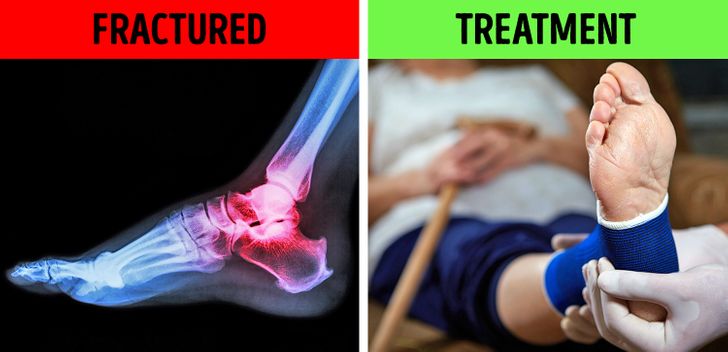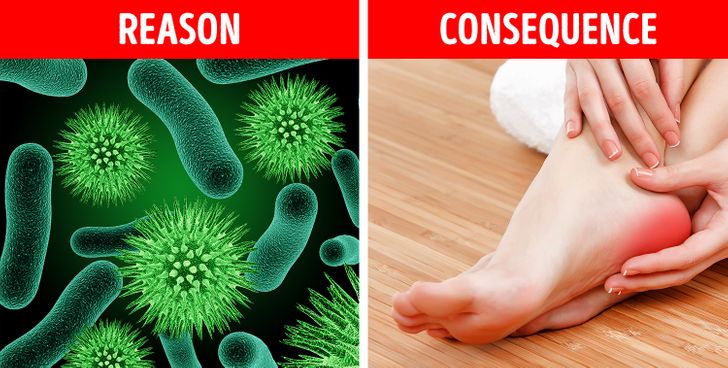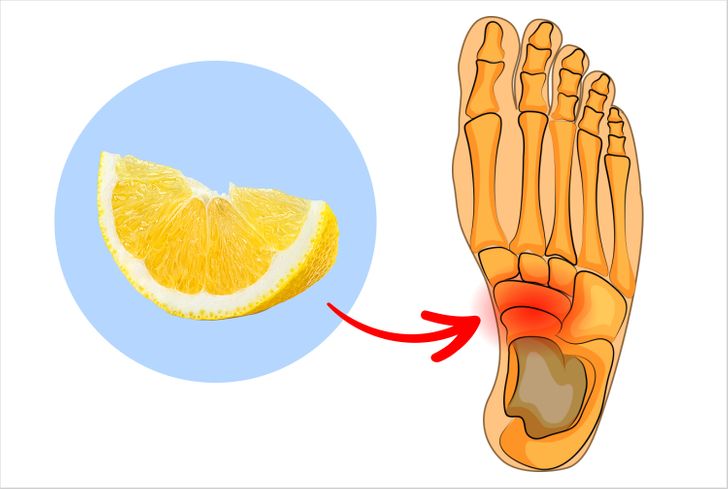You are not the only one with heel pain, it is often a symptom for many of us. A variety of factors can cause this, including trauma, being overweight, uncomfortable shoes, and inflammation. It is important to know that heel pain should not be endured for long, as the diseases that cause it can progress and become more dangerous.
To get rid of discomfort and restore foot health, you need to know what caused the heel pain. We found out which disorders can cause heel pain and how to treat them.
Why Do Heels Hurt in the Morning?
Fracture Of The Heelbone

A fractured calcaneus or cracks can be caused by injuries. And sometimes they go unnoticed and don’t appear for a long time.
Treatment:
Treatment depends on the type of fracture. For some fractures, nonsurgical treatment can be used. For example, immobilizing the foot with a boot in a cast so that the broken bone does not move.
The RICE method (Rest, Ice, Compression, Elevated) can also help. It includes resting, placing an ice pack on the foot, wearing a compression sock, and keeping the foot above heart level.
Reactive Arthritis

Reactive arthritis affects the joints and develops as a result of previous infections, such as gonorrhea, salmonellosis, ureaplasmosis, dysentery, and other diseases that affect the urinary system or gastrointestinal tract.
The characteristic symptoms of reactive arthritis, in addition to heel pain, are a nocturnal aggravation, unpleasant sensations in the genital area, and inflammation of the joints and eyes. They are not the best sensations in the world.
Treatment:
If the inflammation of the heel area is the result of diseases such as chlamydia, gonorrhea or other genital infections, they must be cured urgently. Ask your doctor as soon as possible.
Arthrosis

Arthrosis causes deformity and destruction of the joints and can also affect the heels.
Treatment:
The goal of treating osteoarthritis is to relieve pain. It may include:
Hyaluronic acid injection into the damaged joint to reduce inflammation and increase mobility. Reduce weight to reduce stress on the joint. Replacement of an injured joint with an artificial one.
Contrast bath to reduce swelling around the joint. There is also a natural remedy to reduce inflammation: lemon massage. Simply rub the juice of a lemon wedge on the damaged joint.
Bursitis

Bursitis is a disease characterized by inflammation of the joint sac.
Treatment:
Bursitis may get better on its own. Your doctor may prescribe an antibiotic if the inflammation is caused by an infection or an injection to relieve pain. In a critical case, the doctor may prescribe surgery to remove the bursa.
Conservative pain relief measures:
- Take ibuprofen.
- When you sleep on your side, place a pillow between your legs to relieve tension.
- Take a hot bath or apply a heating pad to the inflamed area.
Gout

Due to gout, urates (uric acid salts) are deposited in the joints and this can cause severe heel pain.
Treatment:
To reduce pain and swelling, apply ice to the affected area and raise your foot above the level of your heart. He also takes anti-inflammatory medications. Gout treatment aims to reduce the level of uric acid in the body:
- Drink lots of fluids.
- Give up alcohol.
- Your doctor may prescribe special medications, such as allopurinol.
How To Prevent Heel Pain
Wear only comfortable shoes with an insole. Don’t push too hard during workouts, increase the load gradually and warm up before training.
Watch your weight. Being overweight can negatively affect your health, including your joints.
Don’t run barefoot on hard surfaces and only train in sneakers.
In case of injury, consult a doctor.
Do you feel pain in the heel? Are you going to visit a therapist after reading this article?


